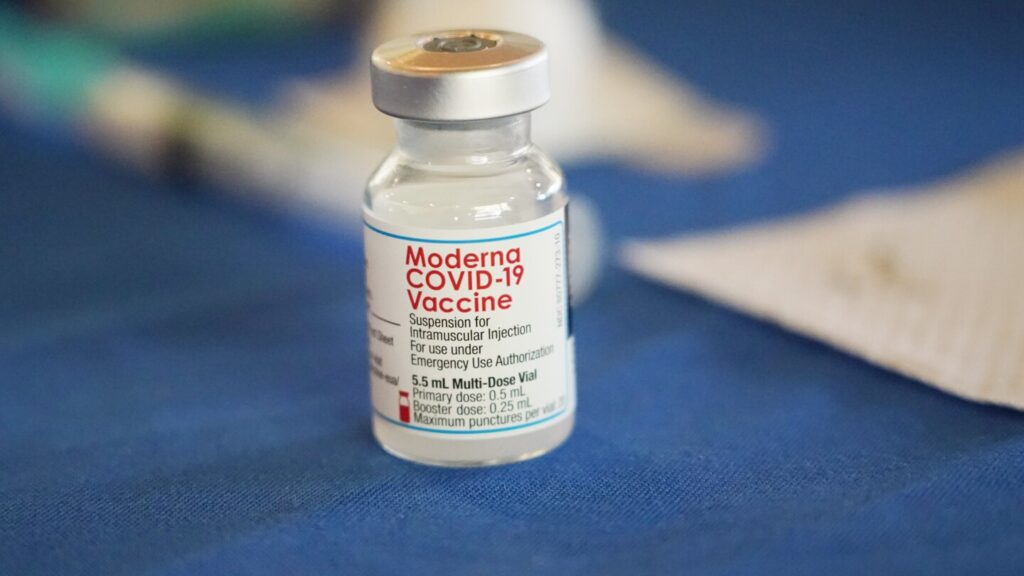
CAMBRIDGE, Mass. – Moderna’s latest study reveals promising immune response in older adults for a combined flu and COVID-19 vaccine, yet U.S. regulators demand more comprehensive data to confirm its efficacy in preventing illness.
Immediate Impact
The biotechnology company Moderna has announced encouraging results from their recent study, indicating that a combination shot for flu and COVID-19, utilizing messenger RNA (mRNA) technology, generated a robust immune response in individuals aged 50 and older. This development could potentially revolutionize vaccination strategies, particularly for older populations.
Key Details Emerge
The study, published Wednesday in the Journal of the American Medical Association, demonstrated that the new combo vaccine elicited a stronger immune response against both COVID-19 and various flu strains compared to existing standalone vaccines. Common side effects reported included injection site pain, fatigue, and headaches.
8,000 participants were involved in the Moderna-sponsored trial.
Industry Response
While Moderna is optimistic about the benefits of mRNA technology, which is already approved for COVID-19 and RSV vaccines, the U.S. Food and Drug Administration (FDA) has requested further data to assess the vaccine’s efficacy in reducing the risk of disease. The FDA’s requirement for more direct measures of protection has prompted Moderna to adjust its target approval date to 2026.
Expert Analysis
Dr. Greg Poland, a vaccine response expert at the Mayo Clinic, expressed skepticism about the popularity of a combo shot. He highlighted the challenge of timing vaccinations effectively, given that flu is seasonal while COVID-19 persists year-round. Dr. Poland emphasized the need for data on the vaccine’s ability to prevent infection and hospitalization.
“I agree in this case with FDA that efficacy data are important to see,” Dr. Poland stated.
Background Context
The mRNA technology, known for its rapid production capabilities, offers a potential advantage over traditional flu shot manufacturing processes, which rely on chicken eggs or cell cultures. Moderna’s researchers suggest that a combination vaccine could enhance vaccination rates by simplifying the immunization process.
Despite the promising study results, Moderna faces challenges from regulatory bodies. Health Secretary Robert F. Kennedy Jr. has voiced concerns over the safety of mRNA vaccines, although Moderna President Stephen Hoge reassured investors about ongoing productive discussions with the FDA.
What Comes Next
As Moderna continues to work towards regulatory approval, the company remains engaged with the FDA to address concerns and provide additional data. Meanwhile, other vaccine manufacturers, such as Novavax, are navigating similar regulatory landscapes, with the FDA requesting further clinical trials for their protein-based COVID-19 vaccine.
The announcement comes as the global community seeks effective solutions to manage seasonal flu and the ongoing COVID-19 pandemic. The potential for a combined vaccine represents a significant shift in public health strategy, aiming to streamline vaccination efforts and improve overall protection against these viruses.
2026 is the new target year for Moderna’s vaccine approval.
The timing is particularly significant as health officials prepare for future flu seasons and potential COVID-19 surges. The outcome of Moderna’s ongoing discussions with the FDA will be closely watched by industry experts and public health officials alike, as they determine the next steps in vaccine development and deployment.





